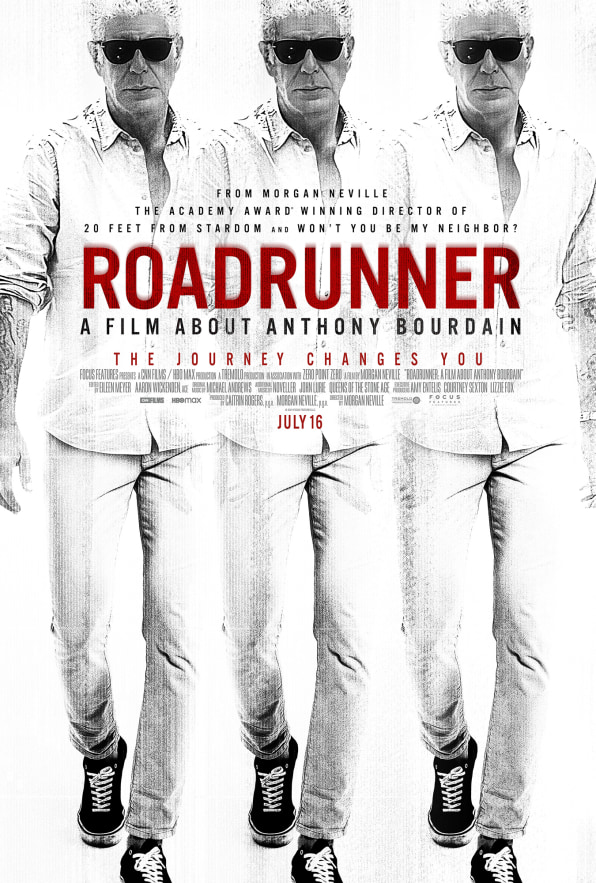Roadrunner Makes It Easy for People to Get Their Dream Ride
Anthony Bourdain's 2000 bestselling memoir/fine dining exposé Kitchen Confidential sparked the second act of his career that took him out of the kitchen as a top New York City chef and sent him across the world in search of new dishes and cultures.
For 16 years, Bourdain's travelogues via three TV series—Food Network's A Cook's Tour, Travel Channel'sNo Reservations, and CNN'sParts Unknown—redefined what food television could be and earned him critical acclaim and a devout following.
So it's little wonder how news of his apparent suicide in 2018 reverberated well beyond the culinary world.
To many, Bourdain's endless wanderlust and curiosity represented more than food: It was a way of seeing the world and its people at the ground level.
It was inevitable that Bourdain's life, influence, and tragic end would eventually be unpacked in a documentary. It was only a matter of finding the filmmaker to meet the Herculean task.
"This was definitely the most intense film I've ever made, emotionally," says Morgan Neville, the Academy Award winning director (20 Feet from Stardom, Won't You Be My Neighbor?). "People told me again and again, 'Don't screw it up.' I understood that this was important in part because it's not just somebody who people cared about. They didn't want me to shatter their ideas about him."
Roadrunner hits all the right marks with thoughtful interviews from Bourdain's friends and colleagues and hours of behind-the-scenes footage. But what's most effective about the doc is how Neville framed Bourdain's story.
Despite Bourdain's raucous and colorful early life as a drug addict making his way up the culinary ladder, Neville made the decision to open the film around the time Kitchen Confidential was published.
"When I thought about a guy in his mid-forties who feels like his life is over and then has this utterly life-changing success and everything he had always wanted, he gets, that was was an interesting starting place for me," Neville says. "What happens when you have this kind of success at that point in your life, which is incredibly uncommon? Does that give you the happiness you thought you were looking for all along? Of course it doesn't. That became the story I gravitated towards. It's the Tony that we know grappling with becoming a new person."
Neville was also mindful of the elephant lurking throughout the doc: how to handle Bourdain's suicide.

While filming an episode of Parts Unknown in France, Bourdain's friend and fellow chef Eric Ripert found him unresponsive in his hotel room. In the doc, Ripert, who was interviewed, flatly states it's something he doesn't talk about. And, in a way, Neville doesn't either.
"It's easy when somebody dies like that, and not that long ago, to see it all through the prism of their death or for it to feel like a eulogy or a wake—and I really didn't want that to happen," Neville says. "I wanted us to feel his early success with possibility."
Roadrunner doesn't attempt to dictate what led Bourdain to take his own life. What Neville so astutely captures are the darker shades of Bourdain—not only the warped humor he so often unleashed, but also a thoroughly nuanced portrait of a man lost in a journey of his own design.
"Tony had a lot of insight into his own character and story, but I feel like he had blind spots, too," Neville says. "We talk about all the momentum he had in his life and always wanting to move ahead and he was a seeker and he was curious. He had a tattoo that said, 'I'm certain of nothing' that he got at age 58. And that all sounds kind of romantic, but by the time you're 60, shouldn't you be certain of a few things? Like the love of the people around you? Being a father? I think that idea of uncertainty and seeking became a hall of mirrors for him. He got lost."
There are any number of angles into making a documentary with an almost mythical figure like Bourdain. So did Neville fulfill that omnipresent mandate of "Don't screw it up?"
"Whether or not we got it right, I don't know. But the permission I got from Tony was the sense that there are no easy answers for things. He hated the idea of easy answers," Neville says. "I felt like I had permission to not try and tie everything up with the bow, but to really just talk in an open, honest, and vulnerable way and people can take their own read from the film."
Neville's personal read from making Roadrunner was a lesson sitting right in front of Bourdain that Neville feels he didn't internalize.
During a 2015 episode of Parts Unknown, Bourdain interviewed punk-rock icon Iggy Pop, one of his personal heroes. Bourdain asked him what was making him happy at that moment in his life.
"And Iggy says, being loved and appreciating those people who are giving love to me. That is exactly what Tony needed to hear at that moment, and I don't think he heard it," Neville says. "I think that's the central message I took away, which is as much as we like to be rushing into the next thing, and exploring the next thing and seeking the next thing, we can't forget to appreciate and hang onto the things we have around us right now."
brooksbeggersewen.blogspot.com
Source: https://www.fastcompany.com/90652626/the-anthony-bourdain-doc-roadrunner-doesnt-offer-a-eulogy-or-easy-answers
0 Response to "Roadrunner Makes It Easy for People to Get Their Dream Ride"
Post a Comment